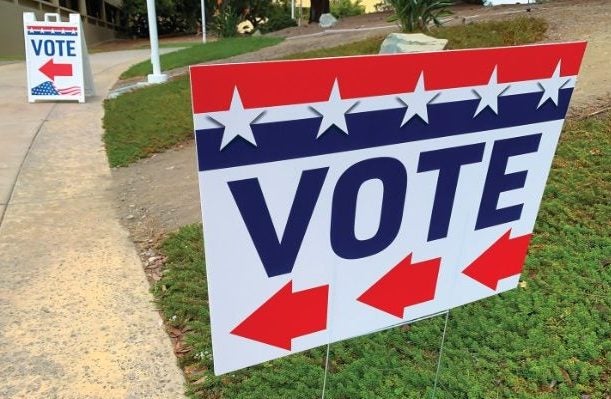Program raises scholarship funds
Published 5:12 am Wednesday, September 12, 2018
Historically Black Colleges and Universities (HBCUs) still matter.
This is the message and goal of the Farmville Kappa Rho Omega chapter of Alpha Kappa Alpha Sorority, Inc. which held an event Saturday at Jericho Baptist Church to honor men in the community and raise funds for scholarships to prepare young students for the future through HBCUs.
Representatives said more than $2 million has been raised to support the national scholarship program.
The Kappa Rho chapter HBCU committee’s goal is to send 12 senior students from Amelia, Buckingham, Cumberland, Prince Edward, Lunenburg, and Nottoway on a trip to Virginia State University (VSU) on Oct. 20 that includes a tour of the campus, lunch, VSU’s homecoming parade and game, and dinner.
Guest speaker Cavell Phillips, who has more than 30 years in the communications industry and hosts the UpBEAT radio devotional on 106.5 The Beat, gave a sermon and addressed the goal of the event to raise funds and honor men in the congregation.
During the event, members of the chapter presented men in the congregation with pins and certificates, and honored them for participating to raise funds.
Jacqueline Gooden-Seay addressed several myths or “fake news” items related to HBCUs.
HBCUs are public and private universities and colleges “established prior to 1964, whose principal mission was, and is, the education of black Americans.”
One myth Gooden-Seay dispelled: HBCU enrollments are declining.
In 2016, freshmen enrollment at HBCUs in the U.S. surged from 22 percent at Central State University in Ohio to 49 percent at Shaw University in North Carolina, according to a report by Walter Kimbrough featured in The Washington Post.
The Pew Research Center cited that in 2015, around 27,000 bachelor’s degrees were awarded to black HBCU students in 2015, making up 15 percent of all bachelor’s degrees earned by black students in that year.
Gooden-Seay said HBCUs also includes a diverse range of Asian, Indian, Native Alaskan, Pacific Islander and Caucasian students, dispelling another myth that only African-American students attend HBCUs.
Gooden-Seay said another myth is that HBCUs are too expensive. Compared to tuition at other universities, Gooden-Seay said HBCUs have risen at comparable levels, and some even have decreased tuition rates.
Another myth that HBCUs do not have the resources to support students, does not take into account that some HBCUs have endowments that exceed $100 million, including Howard University, which had an endowment of $582 million in 2016.
She said HBCUs have had challenges matching the funding from institutions that are predominantly white, or Predominantly White Institutions (PWIs).
“We still are indestructible,” Gooden-Seay said.
Dispelling the myth that HBCUs don’t prepare students for the real world, Gooden-Seay said, “just look in your community.”
Linda Whitehead, a retired teacher at Prince Edward County Public Schools, said she was a graduate of St. Paul’s College in Lawrenceville, an HBCU that closed in 2013.
Virginia has five HBCUs: Hampton University, Norfolk State University, Virginia Union University, Virginia State University and Virginia University of Lynchburg.
Howard University, a historically black university founded in 1867, is located in Washington D.C.
HBCUs, Gooden-Seay said, generally outperform non-HBCU schools in retaining and graduating first generation, low-income African-American students.
“HBCUs are still our havens for the disadvantaged,” Gooden-Seay said. “But produce outstanding leaders for our communities.”
“Education is the most powerful weapon which can be used to change the world,” Gooden-Seay said.
To learn more about the scholarship program or donate, contact Vera Cooke-Merritt at P.O. Box 788, Farmville, VA 23901.







